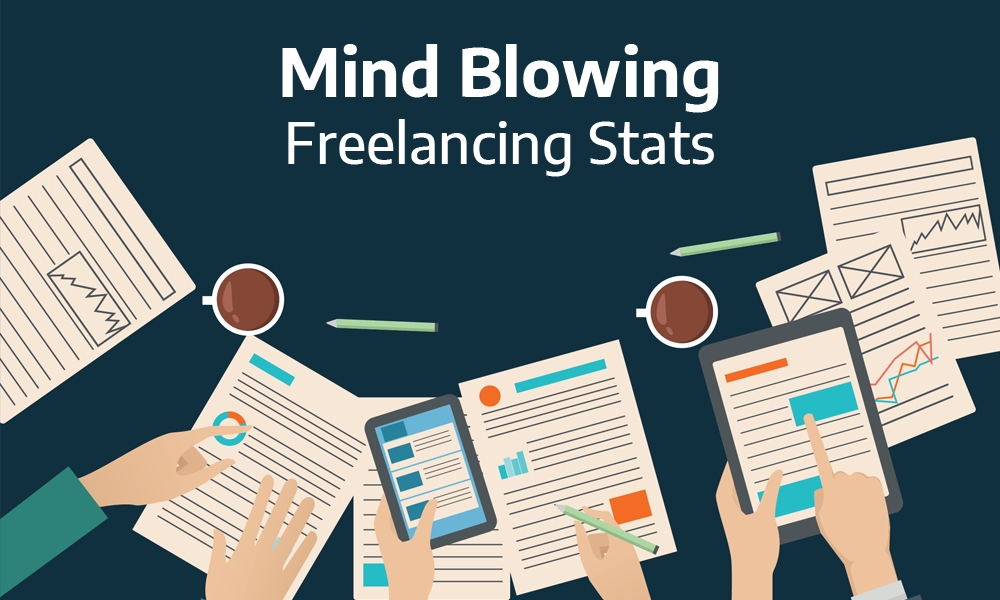
Make Money With These Affiliate Marketing Strategies (Important Tips).
June 24, 2024
How To Start A Successful Online Business (101 Guide).
June 24, 2024Freelancing 101: The Ultimate Guide to Starting a Freelancing Business
In recent years, the concept of freelancing has gained immense popularity, offering individuals the flexibility and autonomy to build their own businesses, work with a diverse range of clients, and pursue their passion while making a sustainable income. This comprehensive guide delves into the advantages of starting a freelancing business, offers a detailed Freelancing 101 guide, discusses key facts and statistics about starting a freelancing project, presents successful freelancing project ideas, and outlines the necessary steps to kickstart your entrepreneurial journey of becoming a digital entrepreneur and making an income online.
Advantages of Starting a Freelancing Business:
1. Flexibility and Autonomy: Freelancing allows individuals to set their own schedules, work from anywhere, and choose the projects they want to work on. This freedom empowers freelancers to achieve a healthy work-life balance and pursue personal and professional endeavors simultaneously.
2. Diverse Clientele: Freelancers have the opportunity to work with clients from different industries, regions, and backgrounds. This diversity presents the chance to expand one’s skill set, gain valuable experience, and build a robust professional network.
3. Income Potential: Successful freelancers have the potential to earn a substantial income based on their expertise, reputation, and ability to secure high-paying projects. As they gain experience and expand their client base, freelancers can command higher rates for their services.
4. Skill Development: Freelancing provides the chance to continually enhance and refine one’s skills. By working on diverse projects and tackling unique challenges, freelancers can sharpen their expertise and remain at the forefront of their industry.
5. Entrepreneurial Experience: Running a freelancing business equips individuals with entrepreneurial skills, including client management, marketing, finance, and project management. This experience can be invaluable for those looking to explore entrepreneurship further down the line.
Key Facts and Statistics About Starting a Freelancing Business:
– The freelancing workforce is expanding rapidly, with estimates suggesting that freelancers will represent a majority of the U.S. workforce by 2027 (Upwork).
– According to a survey by Freelancers Union and Upwork, the freelance workforce contributes over $1 trillion to the U.S. economy, highlighting the substantial impact of freelancers on the economy.
– The most in-demand skills for freelancers include web development, graphic design, marketing, writing, and consulting, reflecting the diverse talent required in the freelancing market (Upwork).
– The freelance industry has witnessed a surge in remote work opportunities, with remote job listings growing by 115% in 2020 compared to the previous year (FlexJobs).
Successful Freelancing Project Ideas:
1. Content Creation: Offering services such as writing, editing, and content strategy for websites, blogs, and marketing materials.
2. Graphic Design and Illustration: Providing graphic design, illustration, and branding services for businesses, entrepreneurs, and agencies.
3. Web Development and Design: Creating custom websites, e-commerce platforms, and web applications for clients across various industries.
4. Marketing and Social Media Management: Assisting businesses with digital marketing, social media management, and advertising campaigns.
Freelancing 101 Guide: Steps to Kickstart Your Entrepreneurial Journey:
1. Identify Your Niche and Target Market: Determine your area of expertise, the services you want to offer, and the audience you want to serve. Understanding your niche and target market will help you tailor your offerings to meet specific client needs.
2. Build a Strong Online Presence: Create a professional website and a compelling portfolio that showcases your skills, previous work, and client testimonials. Utilize social media platforms to network, share your work, and attract potential clients.
3. Set Your Freelancing Rates: Research industry standards and determine your pricing strategy based on your skills, experience, and the value you offer to clients. Consider factors such as project complexity, time commitment, and client budget when setting your rates.
4. Develop a Clear Service Offering: Clearly define the services you offer, including deliverables, timelines, and communication processes. This clarity helps convey professionalism and ensures clients understand what to expect when working with you.
5. Create Contracts and Agreements: Draft clear and comprehensive contracts that outline project scope, payment terms, revisions, and intellectual property rights. Having formal agreements in place can protect both you and your clients in the event of misunderstandings or disputes.
6. Market Your Services: Utilize online platforms, networking events, and industry forums to promote your services and engage with potential clients. Effective marketing efforts can help you gain traction and attract your ideal clients.
7. Deliver High-Quality Work and Exceptional Service: Consistently produce high-quality work, meet deadlines, and provide exceptional customer service. Positive client experiences can lead to repeat business and referrals, contributing to your long-term success.
8. Manage Finances Effectively: Keep track of your income and expenses, set aside funds for taxes, and establish a system for invoicing and payments. Effective financial management is crucial for sustaining a successful freelancing business.
9. Expand Your Skills and Network: Continuously seek opportunities to expand your skill set, learn new technologies, and stay updated on industry trends. Networking with other freelancers, industry professionals, and potential clients can open doors to new projects and collaborations.
Embrace the Freelancing Entrepreneurial Journey:
Embarking on the journey of building a freelancing business offers tremendous opportunities for autonomy, skill development, and earning potential. By leveraging the advantages of freelancing, embracing the key facts and statistics surrounding the industry, exploring successful freelancing project ideas, and following the strategic steps outlined in this guide, aspiring freelancers can set themselves on a path toward creating a thriving business and achieving financial success.
While freelancing offers independence and flexibility, it requires dedication, perseverance, and a commitment to delivering exceptional work. As you navigate your freelancing entrepreneurial journey, focus on honing your skills, building strong client relationships, and continuously improving your business operations. By doing so, you can position yourself as a sought-after freelancer, make a significant impact within your industry, and experience the fulfillment of running a successful business as a digital entrepreneur.



